Articles & Resources
Natural Awakenings
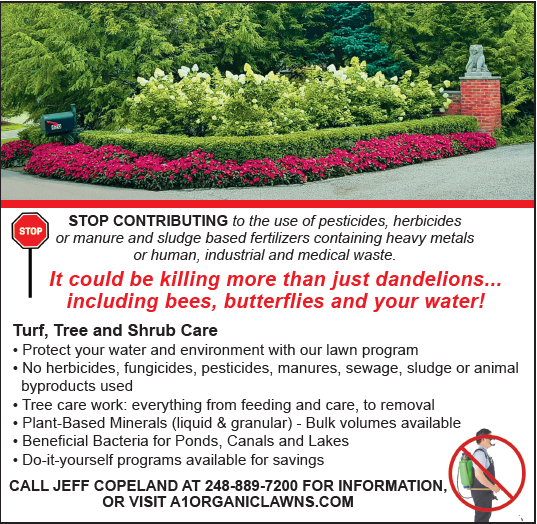
Detoxing the Home from the Ground Up
Michigan Health Living (michiganhealthyliving.com)
April, 2021
Use Humates for Rich Soil, Hardy Plants and a Healthy Body
A healthy home starts with the ground underneath it, and healthy ground starts with humates. Also called humic acid, humates add trace minerals to and remove toxins from soil. They can even supplement drinking water, leading to immunity-boosting and other health benefits. Jeff Copeland, owner of A1 Organics LLC, has been working with humates for over 20 years. Copeland says that humic acid is a large molecule. “Because of its size, it’s able to chelate, or bind to, toxins such as heavy metals, pesticides, herbicides and environmental chemicals. In essence, humic acid is a detoxifying molecule.”
This toxin-binder contains more than 70 trace minerals that in prehistoric times were a living part of plants. The blend of both major and minor trace minerals yields results superior to other mineral supplements, according to Copeland. The minerals are in what is called a colloidal state. This allows these minerals to be more bioavailable than any other form of mineral and thus more beneficial to the animals, plants and soil microorganisms that feed on them. Soil that is nutrient depleted, whether because of lack of plant diversity or overuse of chemical products, can be renewed through humates, with better pH and water retention. The combination of humic acid, carbon and organic matter in garden
plots and lawns is a healthy, eco-friendly one.
Plants can germinate better and 'uptake' trace minerals quickly when humates are in their soil. Humic acid helps soil and plants hold water and nutrients better, meaning better yields with less use of resources such as water. Copeland explains, “Plants grown where humates are used have stronger, deeper root growth (for food storage) and healthier leaves and stems (to make food). These nutrients also help plants carry out normal metabolic processes. Over time, that means the plants have healthier immune systems to fight pests and disease and adapt to changing climate conditions. Liquid humic acid can be applied to plant and root drenching and deep root feedings and can be safely mixed with most fertilizers. No binders or fillers are added.”
Humates even have a place inside the home because humic acid can be added directly to drinking water and other beverages for human and pet consumption. Two new related products, which can be found on the A1 Organics website, are a fulvic/humic proprietary concentrate and a sports water drink. “Humates are great for getting plant-based trace minerals, detoxing the body and helping to build immune strength,” Copeland says.
For More Environmentally Friendly Information
The Dark Side of Retail Compost
Take a few minutes and read Dr. Axe's article titled, "The Dark Side of COMPOST."
It's a real eye opener.
Organic Fertilizing in Michigan
This site is dedicated to helping homeowners, landscape contractors, organic farmers, organic gardeners, and municipalities achieve beautiful results with their turf grass, gardens, houseplants, and landscapes without the use of synthetic-chemical-based fertilizers.
Our sites goal is to offer education and products that helps provide environmentally conscious individuals and the companies who serve these individuals with alternatives to synthetic “weed & feed” fertilizer products. Our alternative, organic lawn fertilizers are environmentally friendly for turf, gardens, watersheds, wildlife, pets, and people.
Biosolids – Get Informed
Dr. Mercola has a great article about biosolids.
It concisely describes biosolids, how they are used and why you should be concerned.
Herbicides/Pesticides Alert
Here are a few important articles to read about the dangers of herbicides and pesticides.
Dr. Zach Bush
From The New York Times
September 21, 2015
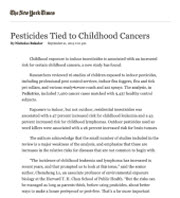
Natural Awakenings ~ A-1 Organic Lawns in Community Spotlight
Read about A-1 in Natural Awakenings
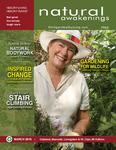
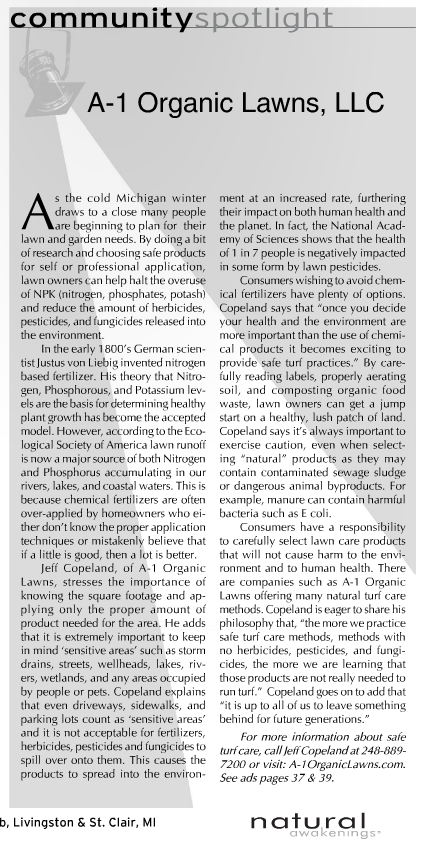
March/April Healing Garden Journal Green Lawns- Healthy Planet
by Jeff Copeland
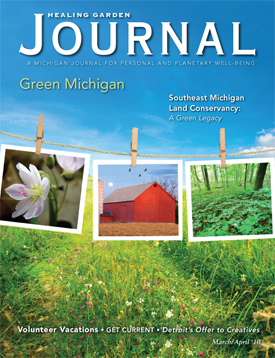 With Spring peeking around the corner, many of us are starting to think about our gardens and lawn care. This is a good time to stop and think about how our lawn care practices might be impacting the environment. After all, we play an important part in controlling the over- use of NPK (nitrogen, phosphates, potash) and the widespread use of herbicides, pesticides and fungicides. It is very important that we, as homeowners or professional contractors understand the damage being done to human health and the environment.
With Spring peeking around the corner, many of us are starting to think about our gardens and lawn care. This is a good time to stop and think about how our lawn care practices might be impacting the environment. After all, we play an important part in controlling the over- use of NPK (nitrogen, phosphates, potash) and the widespread use of herbicides, pesticides and fungicides. It is very important that we, as homeowners or professional contractors understand the damage being done to human health and the environment.
The first step in the use of any lawn products is to know the square footage of the turf to be treated and to apply only the proper amount needed to cover that area. I use only 1.25 lbs. of Nitrogen per thousand sq. feet per season. not “per application”, zero Phosphates, unless introducing new seed and no herbicides, pesticides or fungicides.
It is also important to be aware of sensitive areas such as parking lots, storm drains, streets, sidewalks, wellheads, lakes, rivers, wetlands; any areas occupied by people or pets. And products should never be applied within 30' of open water.
As a lawn care professional, I believe that it is never acceptable to see fertilizers, herbicides, pesticides or fungicides on driveways, parking lots or side walks - as these products are then spread into the environment where the damage to human health and the environment has now reached alarming levels.
It is important that we do some research, (searching the web or asking questions), before using these products, to learn the physical health problems related to their use. It is important to learn not only about the active ingredients in these products but also the inactive ingredients, as these too can cause problems and may be dangerous. Watch to see if you know what ingredients and the amounts you or your contractor are using on your lawn. Learn what you are doing to yourself and the environment.
Once we decide that the quality of the air we breathe, the water we drink, and the soil we grow our food in is more important than the use of these products, it becomes exciting to care for our lawns without the use of these herbicides, pesticides and fungicides.
There are many natural and safe products we can use. If you are thinking of using natural products however, watch out for untreated manure, sewage sludge or animal byproducts, as these too can cause problems. Unsterilized manures can contain E coli and anaerobic bacteria; sewage sludge can contain heavy metals, fungus and anaerobic bacteria; animal byproducts can contain pathogens and unwanted illnesses. Remember, sewage and untreated manure are things we don't want running off into the environment so why do we want it on our lawns?
Corn gluten is a natural product now being used as a natural weed suppressant and fertilizer for grass lawns. In my experience it does not stop weeds from germinating and turns into sugar, which is an ant attractant, ruining lawns. The cost of corn gluten is not economical due to the fact that it takes 50 lbs. per 2000 sq. feet per application.
Composting is a good way to use up our organic waste and makes a great natural fertilizer. Remember though, that if your waste/compost ingredients are from toxic products your compost is toxic, if it is made from the waste of safe ingredients it is safe.
Many of our natural methods work as well or better than the herbicides, pesticides and fungicides we have been raised with. The more we practice safe turf care methods without these products the more we are learning that they are not needed. Remember, it is up to all of us, who need water, air and soil to live, to leave behind a safe environment for future generations.
